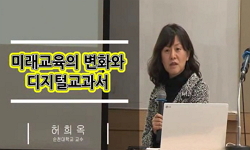본 연구는 Q-방법론을 활용하여 예비 유아교사의 디지털 역량에 대한 주관적 인식유형 및 유형별 특성을 알아봄으로써 예비 유아교사의 디지털 역량 관련 주관적 인식에 대한 기초자료를 대...
http://chineseinput.net/에서 pinyin(병음)방식으로 중국어를 변환할 수 있습니다.
변환된 중국어를 복사하여 사용하시면 됩니다.
- 中文 을 입력하시려면 zhongwen을 입력하시고 space를누르시면됩니다.
- 北京 을 입력하시려면 beijing을 입력하시고 space를 누르시면 됩니다.

디지털 역량에 대한 예비 유아교사의 주관적 인식 유형 연구 = A study of preservice early childhood teachers' subjective perceptions of digital competence
한글로보기https://www.riss.kr/link?id=A109049978
- 저자
- 발행기관
- 학술지명
- 권호사항
-
발행연도
2024
-
작성언어
Korean
- 주제어
-
등재정보
KCI등재
-
자료형태
학술저널
- 발행기관 URL
-
수록면
361-384(24쪽)
- 제공처
-
0
상세조회 -
0
다운로드
부가정보
국문 초록 (Abstract)
본 연구는 Q-방법론을 활용하여 예비 유아교사의 디지털 역량에 대한 주관적 인식유형 및 유형별 특성을 알아봄으로써 예비 유아교사의 디지털 역량 관련 주관적 인식에 대한 기초자료를 대학 기관과 연수 지원 기관에 제공하고자 하였다. 이에 따라 디지털 역량에 대한 문헌과 선행연구를 고찰하고, 예비 유아교사 유아교육과 4학년 학생 250명을 임의표집 하였으며, 총 320개의 Q모집단을 구성하는 진술문을 추출하였다. 수집한 320개의 Q모집단을 반복해서 읽으면서 중복되는 문항은 범주화하고 제외할 문항은 삭제하여 최종 44개의 Q-표본을 선정하였다. 선정된 Q-표본을 34명의 예비 유아교사에게 9단계로 Q-분류하도록 하였으며, 분류한 자료는 SPSS 21.0 사용하여공통 요인 모형과 직각 회전 방법으로 회전하여 최종 요인 구조를 산출하였다. 그 결과 예비 유아교사들의 디지털 역량에 대한 주관적 인식 유형은 3개 유형으로 분류되었고, ‘유아교육 관련 자료 제작 및 소통에 도움받는 디지털 기반 활용형’, ‘디지털 시민의식을 갖춘 디지털 학습자형’, ‘디지털 실천 주체인 유아를 위한 디지털 놀이 제공자형’으로 분석되어 나타났다.
다국어 초록 (Multilingual Abstract)
This study aims to explore pre-service early childhood educators’ perceptions of their digital competence in colleges and training support institutions, and provide pertinent foundational data. Using Q methodology, the study assessed different perce...
This study aims to explore pre-service early childhood educators’ perceptions of their digital competence in colleges and training support institutions, and provide pertinent foundational data. Using Q methodology, the study assessed different perceptions and characteristics of digital competence. The literature and previous studies on digital competence were reviewed, and a random sample of 250 senior students from early childhood education departments was collected. A set of 320 Q statements was extracted and refined through repeated reading to categorize and exclude overlapping items, resulting in a final selection of 44 Q samples. The selected Q samples were then Q sorted into nine stages by 34 pre-service early childhood educators. The sorted data were analyzed using SPSS 21.0 through common factor model and orthogonal rotation to determine the final factor structure. The subjective perception types of digital competence among pre-service early childhood educators were classified into three types: “Digital-based Utilizers for Creating and Communicating Early Childhood Education-Related Materials,” “Digitally Competent Learners with Digital Citizenship,” and “Digital Play Providers for Children Practicing Digitally.” These three perception types illustrate the range of skills and knowledge necessary to enhance the digital competence of pre-service early childhood educators.
동일학술지(권/호) 다른 논문
-
유아교사의 디지털 리터러시와 디지털 놀이 지원역량 간의 관계에서 교수효능감과 디지털 기술 활용태도의 다중매개효과
- 한국열린유아교육학회
- 김정희
- 2024
- KCI등재
-
놀이 중심 지속가능발전교육이 유아의 환경보전 지식, 태도, 행동에 미치는 영향 - 환경영역을 중심으로
- 한국열린유아교육학회
- 임서원
- 2024
- KCI등재
-
2세 영아의 물질과의 내부작용에서 나타나는 놀이 리토르넬로
- 한국열린유아교육학회
- 백지혜
- 2024
- KCI등재
-
영유아교사가 지각한 사회적지지가 교사-영유아 상호작용에 미치는 영향: 정서지능과 놀이교수효능감의 매개효과를 중심으로
- 한국열린유아교육학회
- 현미희
- 2024
- KCI등재




 DBpia
DBpia






